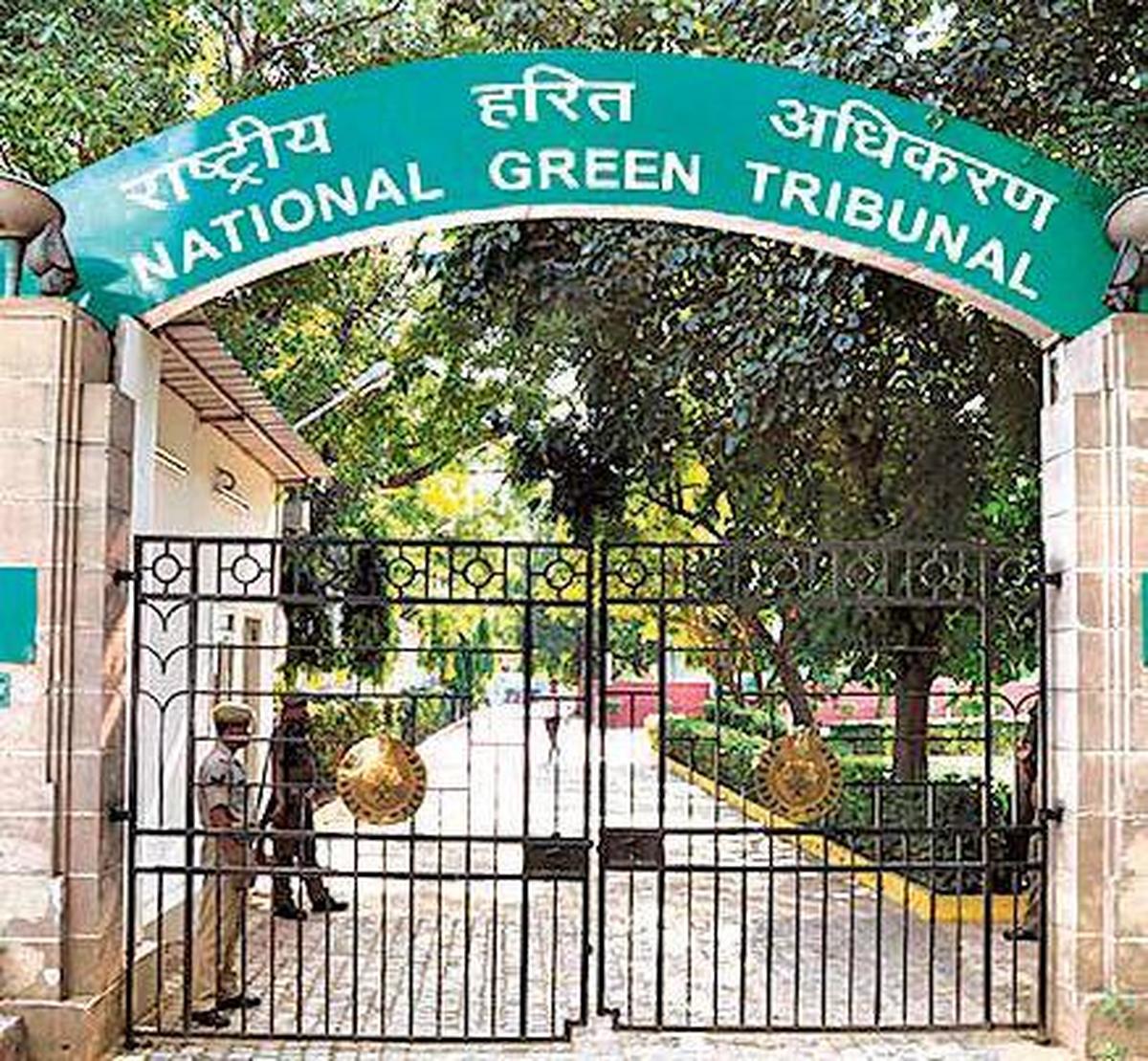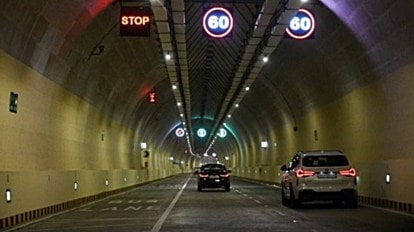Civic groups in Bengaluru have filed a petition with the National Green Tribunal (NGT) challenging the ongoing Tunnel Road project, citing environmental concerns and potential ecological damage. The project, aimed at improving connectivity and reducing traffic congestion in key parts of the city, has faced criticism for its alleged impact on green cover, water bodies, and local biodiversity. Activists argue that the construction could irreversibly damage natural habitats and exacerbate flooding risks, particularly during the monsoon season, which has already seen severe waterlogging in several parts of Bengaluru.
Petitioners contend that the project was approved without adequate environmental impact assessment (EIA) and public consultation, violating statutory norms. Local residents and environmental organizations have highlighted the loss of trees, disruption of drainage channels, and threats to nearby parks and water bodies as major concerns. They argue that the city’s fragile ecosystem cannot withstand large-scale infrastructural interventions without thorough evaluation. The NGT has been urged to suspend ongoing work until comprehensive environmental audits and mitigation measures are undertaken.
The petition has also sparked debate among policymakers and urban planners. While authorities maintain that the Tunnel Road project is essential for easing Bengaluru’s chronic traffic congestion, critics insist that sustainable urban planning should not compromise environmental safeguards. Legal experts suggest that the case could set a precedent for balancing development with ecological preservation, emphasizing the importance of adherence to environmental laws. The NGT is expected to hear the matter in the coming weeks, potentially influencing the future of urban infrastructure projects in the city.
Environmental and Social Concerns
Civic groups have raised alarms about the impact of the Tunnel Road project on Bengaluru’s already stressed environment. Trees along the proposed route, some decades old, face removal, while construction activity could disturb nearby wetlands and water bodies. Residents fear that such disruption may increase the city’s vulnerability to flooding and reduce green cover, affecting air quality and urban heat levels. Experts emphasize that cities like Bengaluru, which are rapidly urbanizing, require careful planning to balance growth with ecological sustainability.
Additionally, social concerns have been highlighted, particularly regarding communities living near the project area. Residents report increased dust, noise pollution, and potential displacement due to construction activities. Activists argue that urban development must account for human as well as environmental costs. Public consultations, they insist, are critical to ensure that local voices are heard and that infrastructure projects do not disproportionately affect vulnerable populations. Incorporating citizen feedback could help mitigate adverse impacts while maintaining the project’s intended benefits.
Authorities’ Defense and Road Ahead
Bengaluru municipal authorities and the project’s implementing agencies maintain that the Tunnel Road project is vital for improving traffic flow and reducing congestion on major arterial roads. Officials argue that comprehensive planning, including the use of modern construction techniques, will minimize environmental damage. However, the lack of detailed public disclosure on environmental assessments has fueled skepticism among civic groups. As the NGT prepares to examine the case, the authorities may need to present evidence of mitigation strategies, including tree transplantation, waterway protection, and pollution control measures. The tribunal’s decision could influence not only this project but also future infrastructure planning across Bengaluru, emphasizing the growing tension between urban development and environmental sustainability.

Civic groups filing the petition have argued that Bengaluru’s rapid urbanization makes the protection of natural ecosystems more critical than ever. They stress that indiscriminate development can have cascading effects, such as the loss of groundwater recharge zones, deterioration of air quality, and destruction of habitats for urban wildlife. In the case of the Tunnel Road project, environmentalists warn that cutting through ecologically sensitive areas could set a dangerous precedent, encouraging similar projects without adequate assessments. This concern is particularly acute in Bengaluru, where decades of unplanned growth have already strained the city’s infrastructure and natural resources.
Residents living along the proposed route have voiced fears over health and safety issues arising from construction. Dust, noise, and air pollution could exacerbate respiratory problems and other health concerns, especially for children and the elderly. Additionally, traffic diversions and prolonged construction could disrupt daily life, affecting schools, markets, and local businesses. Civic organizations argue that while infrastructure development is necessary, it should not compromise public health or quality of life. They urge the authorities to explore alternative routes or mitigation measures that balance mobility with community welfare.
Legal experts note that the NGT’s involvement is crucial because it has the mandate to ensure that development projects comply with environmental laws and regulations. The tribunal can direct authorities to halt construction, conduct detailed environmental impact assessments, or implement corrective measures before allowing the project to proceed. NGT hearings are often meticulous, involving submissions from environmental scientists, civic groups, government officials, and independent experts. The outcome of this case could influence not only the Tunnel Road project but also other urban infrastructure initiatives in Karnataka and across India.
Urban planners have weighed in, suggesting that the project’s intended benefits, such as reduced travel time and improved connectivity, must be weighed against long-term ecological costs. Planners emphasize the importance of integrating green infrastructure, such as tree-lined corridors, rainwater harvesting systems, and noise barriers, into large-scale road projects. By doing so, cities can achieve mobility improvements without sacrificing environmental sustainability. Critics argue that the Tunnel Road project, in its current form, lacks these holistic planning considerations.
Some civic groups have proposed alternative solutions to traffic congestion that avoid environmental degradation. Suggestions include the expansion of public transport systems, dedicated bus corridors, and investment in metro connectivity. Advocates believe that these measures could reduce vehicular load without cutting through sensitive ecosystems. They also argue that citizen engagement in planning processes can lead to more sustainable and widely accepted solutions, preventing conflict and legal challenges later on.
The controversy has also highlighted gaps in Bengaluru’s urban governance. Activists argue that municipal authorities often prioritize high-profile projects over grassroots concerns, leading to friction between planners and residents. The Tunnel Road case exemplifies the need for transparent decision-making, including open disclosure of environmental assessments and public consultations. Strengthening institutional accountability, they argue, is essential to ensure that urban development benefits all stakeholders while preserving ecological integrity.

Economists have weighed in on the potential costs of halting or modifying the project. Delays could increase construction expenses and impact funding allocations, potentially slowing other urban infrastructure initiatives. However, experts caution that ignoring environmental and social concerns could result in even higher costs in the long run, including remediation, litigation, and health impacts. Balancing immediate financial efficiency with sustainable planning is therefore essential for both the project’s success and public acceptance.
Environmentalists also point to the importance of Bengaluru’s green cover in mitigating urban heat islands. The removal of mature trees along the Tunnel Road alignment could exacerbate rising temperatures and reduce air quality. Urban forestry experts argue that tree transplantation alone cannot compensate for the loss of natural vegetation. Maintaining existing green corridors is critical to preserving biodiversity, preventing soil erosion, and sustaining the city’s ecological balance, making this a central issue in the NGT petition.
Social media has amplified the debate, with residents sharing images of affected areas and raising awareness about potential environmental damage. Online campaigns have mobilized public opinion, drawing attention to the project beyond local media coverage. This digital activism has increased pressure on authorities to address concerns transparently and implement mitigation measures. The visibility of the issue has also encouraged other civic groups to monitor and engage with infrastructure projects in Bengaluru, signaling a more active citizenry in urban governance.
Finally, experts warn that the Tunnel Road controversy may serve as a cautionary tale for urban development across India. Cities facing rapid growth must reconcile infrastructure demands with environmental protection, citizen welfare, and long-term sustainability. How the NGT addresses this petition could set a benchmark for future projects, influencing legal, administrative, and planning frameworks nationwide. Bengaluru’s experience highlights the necessity of proactive planning, citizen engagement, and ecological sensitivity in shaping the cities of the future.
Civic groups filing the petition have argued that Bengaluru’s rapid urbanization makes the protection of natural ecosystems more critical than ever. They stress that indiscriminate development can have cascading effects, such as the loss of groundwater recharge zones, deterioration of air quality, and destruction of habitats for urban wildlife. In the case of the Tunnel Road project, environmentalists warn that cutting through ecologically sensitive areas could set a dangerous precedent, encouraging similar projects without adequate assessments. This concern is particularly acute in Bengaluru, where decades of unplanned growth have already strained the city’s infrastructure and natural resources.
Residents living along the proposed route have voiced fears over health and safety issues arising from construction. Dust, noise, and air pollution could exacerbate respiratory problems and other health concerns, especially for children and the elderly. Additionally, traffic diversions and prolonged construction could disrupt daily life, affecting schools, markets, and local businesses. Civic organizations argue that while infrastructure development is necessary, it should not compromise public health or quality of life. They urge the authorities to explore alternative routes or mitigation measures that balance mobility with community welfare.
Legal experts note that the NGT’s involvement is crucial because it has the mandate to ensure that development projects comply with environmental laws and regulations. The tribunal can direct authorities to halt construction, conduct detailed environmental impact assessments, or implement corrective measures before allowing the project to proceed. NGT hearings are often meticulous, involving submissions from environmental scientists, civic groups, government officials, and independent experts. The outcome of this case could influence not only the Tunnel Road project but also other urban infrastructure initiatives in Karnataka and across India.

Urban planners have weighed in, suggesting that the project’s intended benefits, such as reduced travel time and improved connectivity, must be weighed against long-term ecological costs. Planners emphasize the importance of integrating green infrastructure, such as tree-lined corridors, rainwater harvesting systems, and noise barriers, into large-scale road projects. By doing so, cities can achieve mobility improvements without sacrificing environmental sustainability. Critics argue that the Tunnel Road project, in its current form, lacks these holistic planning considerations.
Follow: Karnataka Government
Also read: Home | Channel 6 Network – Latest News, Breaking Updates: Politics, Business, Tech & More

